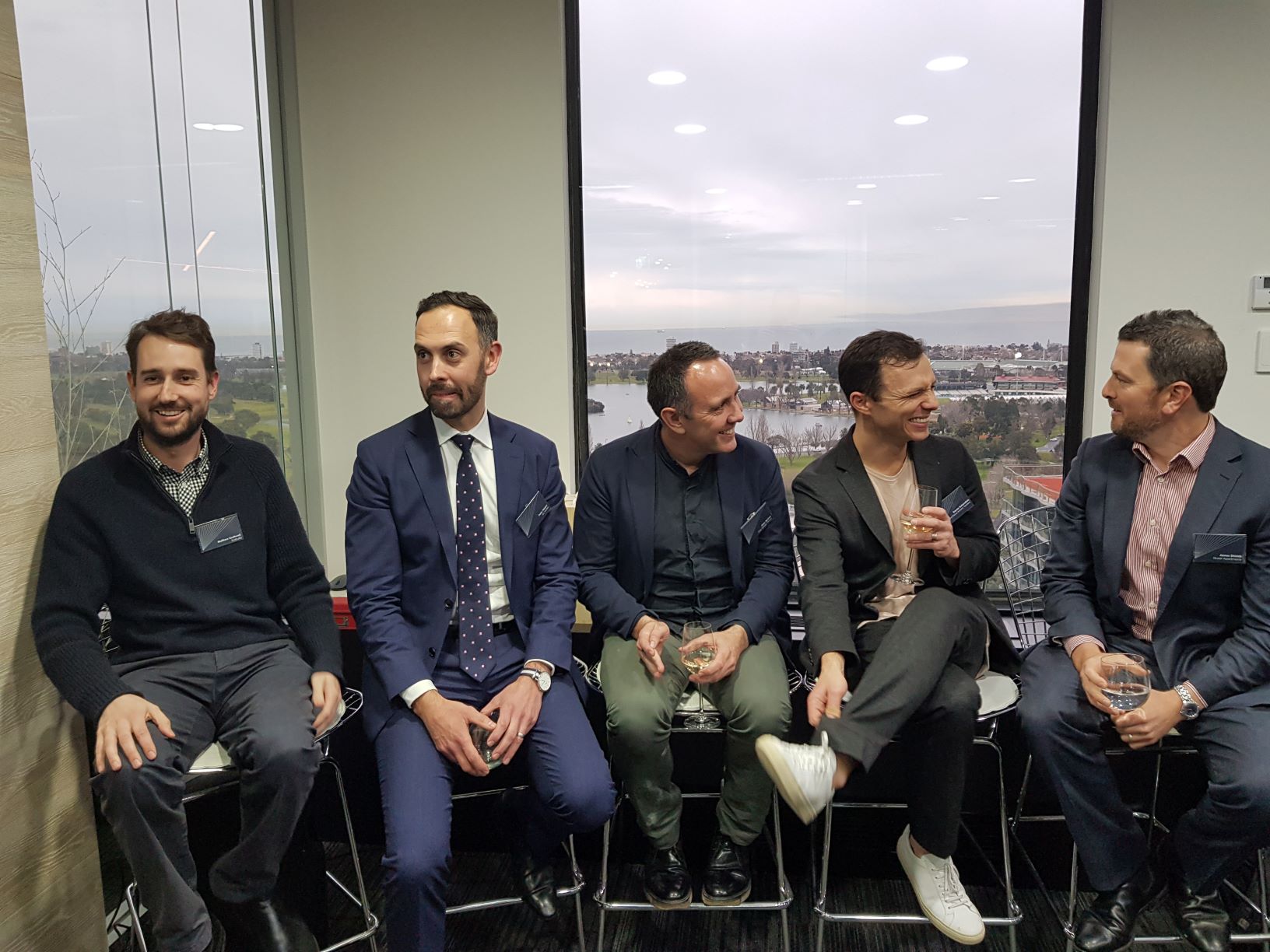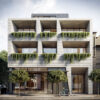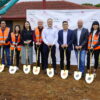Some of the brightest minds in the hospitality property sector gathered recently at Point Polaris’s Melbourne office to discuss the future of Melbourne’s hotel spaces, as part of our Outlook Boardroom debates.
Hosted by Point Polaris’ Managing Director, Andrew Hogan, and General Manager, Rob Clarke, the evening featured guest speakers Peter Harper, Executive VP – Hotels at JLL; Chris McCue, Director of Architecture at Carr Design; Darren Rubenstein, Director of new boutique hotel developer/operator United Places; James Shields, General Manager – Growth at Quest Hotel Apartments; and Matthew Southwell, Senior Project Manager at Probuild.
Peter Harper commenced the discussion with a spotlight on the robust Melbourne market, which has drawn the attention of domestic and international developers, investors and operators.
With nearly 3,000 rooms under construction and 4,500 rooms proposed for the CBD and CBD fringe, there is an unprecedented new supply pipeline.
“Trading performance should ‘hold’ over the next 5 years with a strong occupancy based allowing ADR (Average Daily Rate) to grow inline with an enhanced product offering in the medium term onwards,” said Peter. “Active asset management of existing and new hotels absolutely critical moving forward.”
Chris McCue used 3 case studies – Jackalope Hotel on Mornington Peninsula; River Street Hotel in South Yarra; and United Place Botanic Gardens – to highlight the importance of placemaking when designing a boutique hotel brand.
“Site context defines purpose,” said Chris. “We then look to represent the client’s ideology through detail, use storytelling to engage and deliver a form that respects the site with appropriate scale and interface.”
Chris quoted Louis Li, the client behind Jackalope Hotel who said: “A mythological creature fabled to be part-jackrabbit, part-antelope, the Jackalope perfectly represents the intangible elements of my vision – playful yet serious, fierce yet gentle, strong yet soft.”
Darren Rubenstein, who engaged Carr Design to design United Place Botanic Gardens said: “‘United Places is a creative platform, built upon my very own experiences in design, travel and hospitality. I wanted to create a ‘home’ for the likeminded traveller seeking experiences that celebrate locality. It’s about creating a rich experience that guests will absolutely not be able to get elsewhere.”
James Shields offered up an alternative to the traditional hotel and argued that the Apartment Hotel sector is the primary growth segment of the Australian accommodation market with market share growing from 17% to over 25% since 2000.
“There are many advantages of corporate over the leisure sector,” said James. “These include longer average stays than leisure guests; less seasonality, resulting in greater RevPAR stability; larger volume clients; and greater weekday occupancy with weekend leisure volume providing additional upside.”
Finally, Matthew spoke about delivery and how best, in their experience, to build a hotel.
The talk centred around Four Points by Sheraton, a 273 room, 4 star hotel for Hiap Hoe.
“The ECI phase at the commencement of the project was integral to success,” said Matthew. “As was early design involvement from the hotel’s operating team, which was supported through design and delivery to achieve the desired quality with a well consider fit-out. The operator sat in the Probuild office for 6 months prior to handover, ensuring they were fully aware of what they were buying.”
Andrew concluded the evening with a Q&A session and a brief overview of Point Polaris’ development advisory and project management services, before guests retired to the reception area to enjoy networking and drinks late into the evening.








